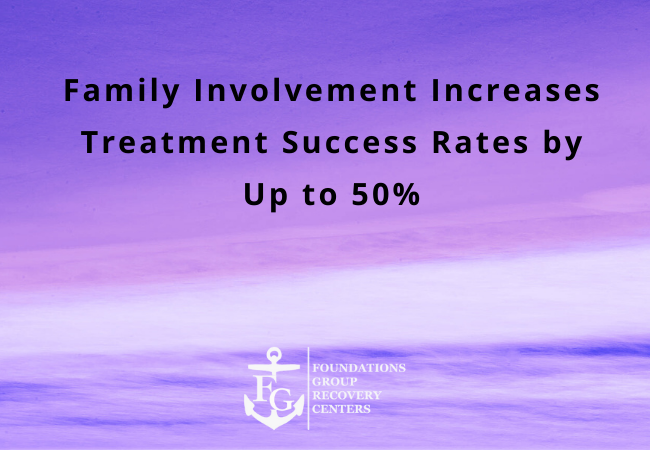Recovery from alcohol addiction is never a solitary journey. While professional treatment provides the structure, tools, and therapeutic guidance necessary to break free from alcohol dependency, the involvement of family can be the lifeline that sustains lasting change. The road to sobriety is filled with emotional, physical, and psychological hurdles—and family support often becomes one of the most powerful motivators in overcoming them.
Alcohol addiction impacts not just the individual but everyone around them. Relationships can become strained, communication often breaks down, and trust may erode over time. But within those very challenges lies the potential for healing. When families come together to support a loved one’s recovery, they not only foster a safer environment for sobriety but also promote deeper personal and relational healing.
In this blog, we’ll explore why family support is essential in the recovery process, how it shapes long-term outcomes, and how treatment centers are integrating family systems into comprehensive care plans.
Understanding the Emotional Landscape of Alcohol Addiction
Alcohol addiction, at its core, is both a physical and emotional disease. While the substance itself creates a chemical dependency, the emotional roots often stem from trauma, anxiety, depression, or environmental stressors. Family relationships can play a major role in either perpetuating or resolving these emotional triggers.
For example, unresolved conflicts, codependent behaviors, or enabling patterns can make it more difficult for someone to commit to recovery. On the other hand, when family members learn how to set healthy boundaries, communicate more effectively, and offer empathetic support, it creates a strong safety net for individuals in recovery.
In Massachusetts, the increasing demand for Alcohol addiction Treatment in Massachusetts has led many treatment providers to incorporate structured family involvement into their programming. These interventions often lead to improved retention in treatment and lower relapse rates, offering more sustainable recovery outcomes.
How Family Engagement Enhances the Treatment Process
Family support doesn’t just serve as a motivational tool—it actively improves the effectiveness of treatment programs. Here’s how:
-
Accountability: When loved ones are involved in the recovery process, individuals are often more likely to stay committed and honest in their efforts.
-
Motivation: Family encouragement can reignite hope and help clients stay focused during difficult moments.
-
Improved Communication: Therapy sessions that include family can help repair broken communication lines and create space for vulnerability and healing.
-
Education: Many treatment centers offer family education programs to help relatives understand the science of addiction, enabling vs. supporting, and how to take care of their own mental health as well.
A growing number of Addiction Treatment Programs in Massachusetts now recognize that individual healing is deeply connected to family dynamics. This shift toward inclusive recovery recognizes that healing must happen in the broader context of one’s personal environment.
Family Therapy as a Core Component of Recovery
Family therapy is not simply about sitting down and talking through the past. It’s a structured process designed to identify and modify patterns that may be contributing to ongoing substance use. Licensed clinicians guide families through discussions around boundaries, communication, and conflict resolution, while also encouraging empathy and understanding.
These sessions often uncover intergenerational patterns or hidden traumas that may have played a role in the development of addiction. By addressing these issues together, both the individual and their loved ones can begin to move forward with greater clarity and mutual respect.
In outpatient care settings, such as Outpatient addiction Treatment in Massachusetts, family therapy may take place once a week, either in person or virtually. These ongoing sessions provide valuable continuity and can help rebuild the trust that often deteriorates during active addiction.
Structured Programs That Include Family Involvement
Not all treatment programs are created equal when it comes to family involvement. Some facilities emphasize individual therapy, while others integrate family support into every phase of care. At Foundations Group Recovery Centers, a range of flexible options are available to support clients and their loved ones.
For instance, individuals enrolled in a Half Day Treatment Program in Massachusetts can still engage in weekly family therapy, participate in multi-family group sessions, and access online family education tools. These features help ensure that healing isn’t paused just because a client isn’t in full-time residential care.
In addition, Day Treatment Programs in Massachusetts offer a more immersive environment where family visits, support sessions, and therapist-led family weekends can become part of the recovery process. These intensive formats are especially beneficial for individuals in early recovery or those with a long history of substance use.
The Role of Family in Post-Detox Transition
Detox is the critical first step in breaking the physical hold of alcohol, but it’s only the beginning of the recovery journey. After completing a medically supervised Alcohol & Drug Detox in Massachusetts, many individuals feel vulnerable, both physically and emotionally. This is a time when family involvement is more important than ever.
Families can help by offering transportation to therapy appointments, creating a substance-free home environment, or simply being present to talk. The emotional reassurance that someone is there, cheering you on without judgment, is often what keeps people from giving up.
For treatment centers that prioritize seamless care, transitioning from detox into continued therapy is coordinated alongside family input. Whether clients move into structured outpatient care or more flexible models, having loved ones who are informed and involved makes a significant difference.

Healing Together: Rebuilding Relationships Damaged by Addiction
Addiction can fracture even the closest relationships. Trust is often the first casualty, followed by communication and emotional intimacy. But recovery provides a framework for rebuilding—one that is rooted in accountability, empathy, and shared growth.
It’s important to recognize that families need their own recovery process too. Loved ones often carry guilt, shame, and confusion about their role in the individual’s addiction. Treatment programs that include family education and support help both parties heal simultaneously.
For families in substance use Treatment Programs in Massachusetts, opportunities to engage in parallel healing—through support groups, individual counseling, or joint sessions—can promote longer-term resilience. These strategies equip everyone involved with the tools to prevent relapse and maintain healthy relationships long after formal treatment ends.
Why Choose Us?
At Foundations Group Recovery Centers, we recognize that addiction affects more than just the individual—it impacts the entire family system. That’s why our approach to treatment emphasizes whole-family healing and collaboration from the very first step. We believe that sustainable recovery happens when a client’s emotional and relational needs are addressed alongside their physical and psychological ones.
What sets us apart as an Addiction Treatment Center in Massachusetts is our unwavering commitment to personalized care and community support. We offer evidence-based therapies combined with family-inclusive programming, giving clients and their loved ones the opportunity to heal together. Our family therapy services are not add-ons—they are core components of our recovery model.
Clients in our programs benefit from a range of services designed to meet individual and family needs, including:
-
Weekly family therapy led by licensed clinicians
-
Multi-family education and support groups
-
Workshops on boundaries, communication, and co-dependency
-
Family weekends and visitation options (for applicable levels of care)
-
Access to support resources and post-treatment planning for the family
Our multidisciplinary team of addiction counselors, mental health professionals, and family specialists collaborate closely with both the individual and their loved ones to create a path forward that encourages growth, accountability, and compassion. Whether you’re seeking help for a parent, partner, sibling, or child, Foundations Group Recovery Centers provides the guidance and tools to rebuild relationships and restore hope.
Conclusion
Family support has the power to transform the entire trajectory of alcohol addiction recovery. While professional treatment provides the structure and clinical tools needed to address substance use, it is often the love, understanding, and presence of family that sustains someone through the hardest moments of their healing journey. Involving loved ones not only improves outcomes for the individual but strengthens the family unit as a whole, fostering resilience, empathy, and renewed connection.
At Foundations Group Recovery Centers, we are committed to walking alongside individuals and families as they heal—together. From the first phone call to the final therapy session, we are here to provide compassionate, informed, and effective care for all. If you or a loved one is struggling with alcohol addiction, don’t wait. Reach out to our team today at (844) 763-4966 and take the first step toward a future built on trust, healing, and hope.
Frequently Asked Questions (FAQs)
How does family support influence alcohol addiction recovery?
Family support plays a significant role in helping individuals feel emotionally grounded and less isolated during treatment. It also encourages accountability and improves motivation, which are essential for long-term sobriety.
What kinds of family support are most helpful in recovery?
The most effective forms of support include open communication, emotional encouragement, participating in therapy sessions, and learning about addiction. Structured family therapy can help address unresolved conflicts and rebuild trust.
Can family involvement be part of outpatient or day treatment programs?
Yes, many outpatient and Day Treatment Programs in Massachusetts incorporate family therapy as a core element of care. These programs often offer flexibility for families to attend sessions and participate in educational workshops.
What if the family dynamic is toxic or harmful?
If a family dynamic is unsafe or overly toxic, treatment providers will assess whether family involvement is appropriate. In some cases, individual therapy may be prioritized first, and family work can be addressed later with proper support systems in place.
How can families prepare to support a loved one in recovery?
Families can educate themselves about addiction, attend support groups such as Al-Anon or family counseling, and work on their own emotional healing. Preparing to offer support means understanding boundaries, patience, and how to avoid enabling behaviors.

